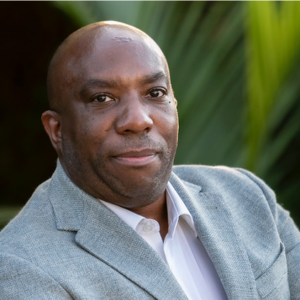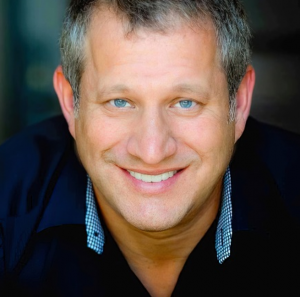ArizMATYC/MAA Southwestern Section Joint Conference
Are you kidding me? We’re having a conference on April 1 – 2, 2022! This will be a joint conference of ArizMATYC and the Southwestern Section of the MAA. It will be held at Arizona State University’s Polytechnic campus.
Schedule
Full Conference Program | Schedule Grid | Conference Evaluation
Friday, April 1
- ATF meeting: 10:00 am – 12:00 pm
- Full Conference Registration & Sessions: 12:00 pm – 5:00 pm
- Dinner and Keynote: 5:30 pm – 7:15 pm
Saturday, April 2
- Breakfast and Keynote: 8:30 am – 10:15 am
- Saturday Registration and Sessions: 10:30 am – 1:10 pm
Registration
Registration for the conference is now open. Registration for the conference is $45.
Keynote Speakers
Keynote speakers for the conference are Edray Goins and Scott Flansburg.
Edray Goins | Friday Evening Keynote | Slides
 Edray Herber Goins is Professor of Mathematics at Pomona College. He has worked as a researcher at both Harvard and the National Security Agency; and has taught at both Caltech and Purdue. Professor Goins has published over 25 journal articles in areas such as applied mathematics, graph theory, number theory, and representation theory; and on topics such as Diophantine equations, elliptic curves, and African Americans in mathematics. He has given more than 200 invited addresses on his research, acted as a referee for nearly 20 different journals in mathematics, served on dozens of panels for the National Science Foundation (NSF), and been awarded more than $1 million in external funding. Goins currently runs a federally-funded Research Experience for Undergraduates (REU) titled Pomona Research in Mathematics Experience (PRiME).
Edray Herber Goins is Professor of Mathematics at Pomona College. He has worked as a researcher at both Harvard and the National Security Agency; and has taught at both Caltech and Purdue. Professor Goins has published over 25 journal articles in areas such as applied mathematics, graph theory, number theory, and representation theory; and on topics such as Diophantine equations, elliptic curves, and African Americans in mathematics. He has given more than 200 invited addresses on his research, acted as a referee for nearly 20 different journals in mathematics, served on dozens of panels for the National Science Foundation (NSF), and been awarded more than $1 million in external funding. Goins currently runs a federally-funded Research Experience for Undergraduates (REU) titled Pomona Research in Mathematics Experience (PRiME).
Edray’s keynote is titled “Is It Fair To Ask Our Minoritized Students To Major In Mathematics?” Many of us teach minoritized groups and first-generation / low-income students in college who don’t readily think of the mathematical sciences as a viable career option. Indeed, many of our students are concerned with ways to help out their families financially or seek paths that will provide opportunities to build generational wealth. Majors such as Computer Science, Economics, Political Science, and Pre-Health seem to make sense to those with families who encourage them to become doctors, lawyers, or the next Elon Musk. Is it fair to ask our minoritized students to major in mathematics? In this interactive presentation, we weigh the pros and cons of doing so. We will have audience participation while tackling several difficult questions: What career options in the mathematical sciences can promote generational wealth? How do we justify encouraging our students to pursue careers in data science which have shown bias against people of color via faulty machine learning models? Are there cultural barriers keeping some groups of students away from math and statistics, such as focusing on the historical work of “old white men”? In the end, we hope this discussion will build some best practices on how to talk about the culture of the mathematical sciences with first-generation / low-income students.
Scott Flansburg | Saturday Morning Keynote
 Scott Flansburg is listed in the Guinness Book of World Records as the ‘fastest human calculator’. Scott is a best selling author, tv show host on The History Channel, and founder of the National Counting Bee.
Scott Flansburg is listed in the Guinness Book of World Records as the ‘fastest human calculator’. Scott is a best selling author, tv show host on The History Channel, and founder of the National Counting Bee.
Scott’s keynote is titled “Nothing REALLY Matters!” Zero is the most important number when it comes to mental math. Students usually skip zero and start at one. Zero is our hero. When students count zero, the rest of numbers line up and make sense. When you turn on a calculator, the only reason you get the right answer is because it starts at zero. We will cover the ’secret to numbers’ and the ‘human calculator matrix’ during this session. We will also be having a ‘counting bee’ with our audience members for prizes. We are counting on you to be there. Don’t be a zero. Be a hero. NOTHING really matters.
Parking
Conference attendees have three parking options.
Chandler-Gilbert Community College – Williams Campus and Arizona State University – Polytechnic Campus share a common border and are in the same campus “neighborhood”.
Options:
1. Park for free + free shuttle ride: Park for free at the nearby Chandler-Gilbert Community College Williams Campus (7360 E Tahoe Ave, Mesa, AZ 85212) in Lot 94 off of Innovation Way. Then, take a free shuttle ride to the conference location. Shuttle service will run on Friday, April 1 from 11:45am to 12:30pm, and again from 7:15pm to 7:45pm. Shuttle service will run on Saturday, April 2 from 8:00am to 8:30am, and again from 1:10pm to 1:40pm.
2. Park for free + walk: Park for free at CGCC-Williams as indicated above, and take a short walk to the conference location (about a 10 minute walk).
3. Pay to park: Park at the ASU Polytechnic campus in the lots marked by red or blue dots in the map above. There is a $12 fee for parking.
Be a Presenter
The deadline to present has passed. Thank you to all who submitted proposals!
Vendors
The deadline to be a vendor has passed. Thank you to all our vendors who are participating! We are grateful for the support of Derivita, McGraw Hill / ALEKS, XYZ Textbooks and XYZ Homework, Pearson, Macmillian Learning, and Hawkes Learning.
Lodging
The recommended lodging options are:
Four Points by Sheraton at Phoenix Mesa Gateway Airport
6850 E Williams Field Rd, Mesa, AZ 85212
Courtyard by Marriott at Phoenix Mesa Gateway Airport
6907 E Ray Rd, Mesa, AZ 85212
Questions?
Contact Matthew Isom at isom@asu.edu.
